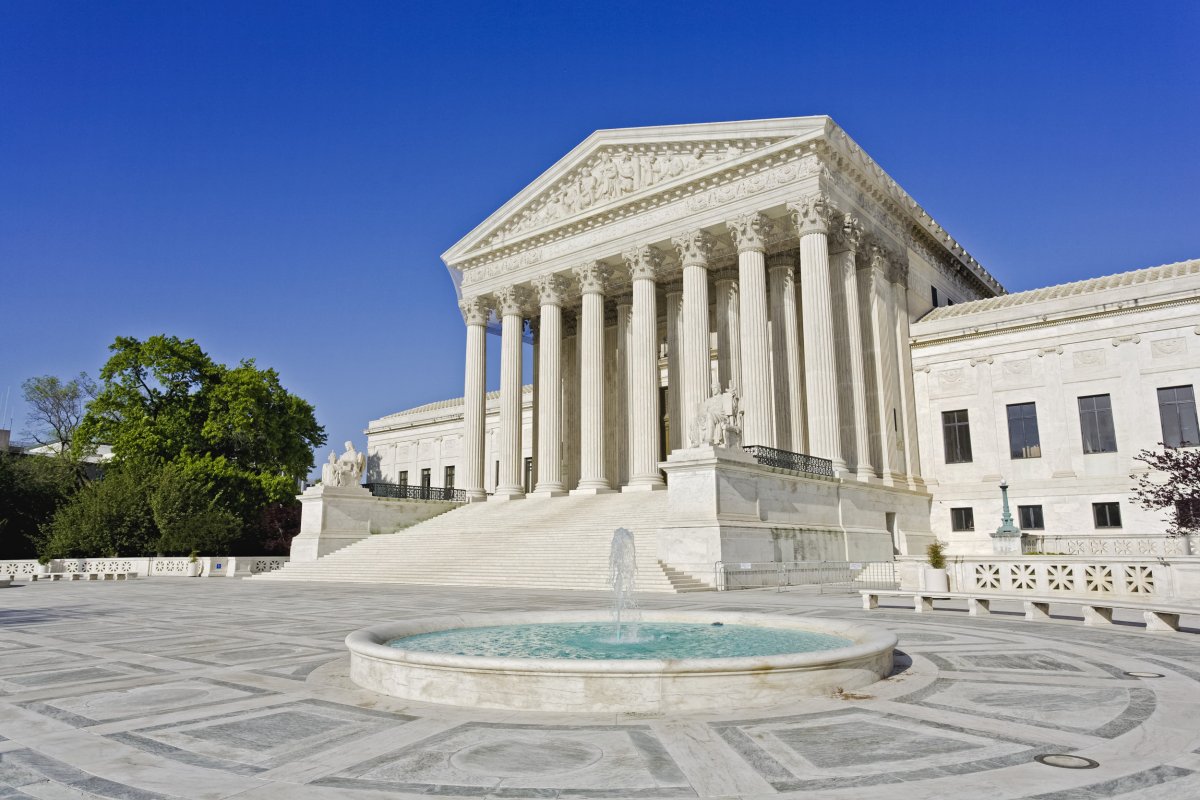The Supreme Court will hear arguments next week in a case that could have legal ramifications for noncitizen unions and the wider U.S. immigration system.
Plaintiffs Sandra Muñoz, a Los Angeles-based civil rights attorney, and her husband, Luis Ernesto Asencio-Cordero, an El Salvadoran national, have been separated since 2015 when a consulate denied his visa application.
Asencio-Cordero was refused because the official suspected his tattoos signified gang membership, a suspicion that is unfounded according to expert testimony.
Oral arguments will commence Tuesday in State Department v. Muñoz, to decide if the couple can reunite legally in the U.S..
The conservative court that holds a 6-3 majority will rule on two main issues: one, whether a consular officer's refusal of a visa to a U.S. citizen's noncitizen spouse impinges upon a constitutionally protected interest of the citizen.

And two, whether, assuming that such a constitutional interest exists, notifying a visa applicant that he was deemed inadmissible under 8 U.S.C. § 1182(a)(3)(A)(ii) suffices to provide any process that is due.
That section of U.S. Code references any illegal immigrant who a consular officer or the U.S. attorney general knows or has reasonable ground to believe the individual engaged in unlawful activity.
Newsweek reached out to the State Department and Muñoz via email for comment.
"The non-reviewability of consular decisions as to admissibility is extremely well established, and it would be an earthquake for the Court now to determine that due process outside the country requires a detailed explanation of the grounds for exclusion or that the exclusion is subject to review by U.S. courts. A preference for 'family unification,' even if recognized, is not grounds for overturning this doctrine," David Abraham, law professor at the University of Miami, told Newsweek.
The government, in its opening brief, says that "requiring consular officers abroad to make disclosures about security-related visa denials to foreign applicants who have U.S.-citizen spouses or other qualifying relatives could require the revelation of sensitive information."
"That could tip off transnational criminal and terrorist organizations about law-enforcement and intelligence techniques and sources, enable circumvention of measures designed to detect immigration fraud and criminality, and have a chilling effect on domestic and foreign agencies' sharing of information with the Department of State—all to the detriment of national security."
The couple met in 2008 and were married in 2010. She initiated the visa process in 2013 so he could become a permanent U.S. citizen. He passed a background check conducted by the Department of Homeland Security used to determine whether he was a national security risk.
The impact of his absence on his wife was also taken into account.
But his visa was ultimately denied in December 2015 by an El Salvadoran consular officer who referred to a statute essentially providing an officer authority to deny an application to someone who they have reason to believe is a threat.
The consulate later said during litigation that the denial of Asencio-Cordero's application was "based on" a criminal review, an interview with him, and his tattoos, according to the National Immigrant Justice Center.
He has no criminal record. The couple also previously submitted an affidavit from a gang expert who reviewed the tattoos and determined no associated gang connection.
After the application denial, the State Department in May 2016 said they received "no new information" and that they would no longer adjudicate the case.
But they reversed course a little over a year later, saying in November 2018 that it denied the visa based on a consular officer's belief that Asencio-Cordero's tattoos made him look like a part of MS-13.
In October 2022, the Ninth Circuit granted her appeal and ordered a remand on the grounds of due process. In January of this year, the government's petition for certiorari (review of the lower court decision) was granted two months after it was petitioned.
Between February and this month, 15 different testimonials in the form of amicus briefs were filed in support of the couple, including dozens of members of Congress, former government officials, religious organizations, academics, legal services providers, and the American Bar Association.
Update 04/19/24, 11:41 a.m. ET: This story was updated with comment from David Abraham.
Uncommon Knowledge
Newsweek is committed to challenging conventional wisdom and finding connections in the search for common ground.
Newsweek is committed to challenging conventional wisdom and finding connections in the search for common ground.
About the writer
Nick Mordowanec is a Newsweek reporter based in Michigan. His focus is reporting on Ukraine and Russia, along with social ... Read more
To read how Newsweek uses AI as a newsroom tool, Click here.








